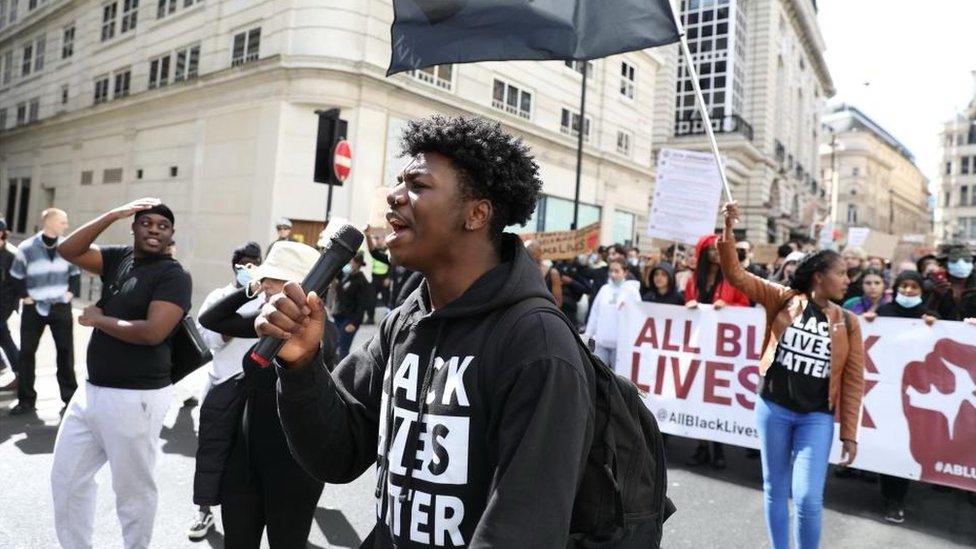Rural racism in Dorset: Why is our countryside 98% white?
- Published
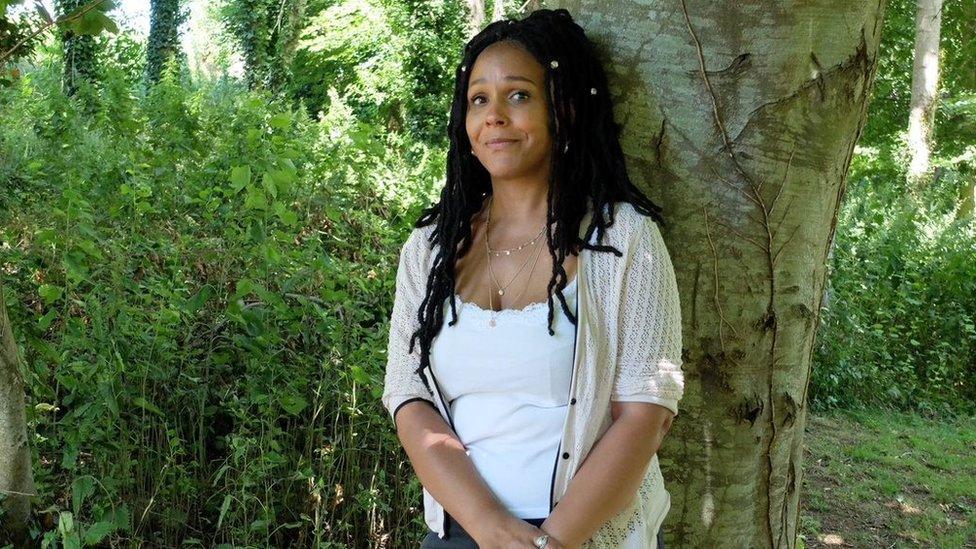
Writer Louisa Adjoa Parker says people make assumptions about her because of her looks
The death of George Floyd and the subsequent Black Lives Matter protests may have seemed a distant reality to many people in Dorset.
In the predominantly rural county, the population is 97.9% white.
But, as some the 2.1% who do not identify as white can testify, racism can be just as much of a problem in the countryside as it is in our cities.
Jag Patel moved to Gillingham 18 years ago with his wife where they bought a newspaper shop and started a family.
But, having moved from north London, the couple said they were unprepared for the prejudice they and their three daughters would endure.
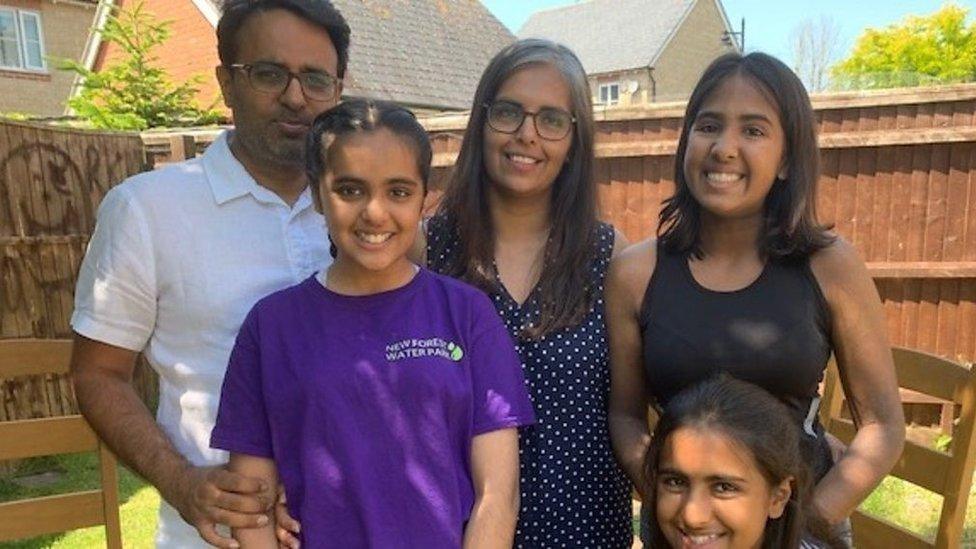
Jag Patel says people have shouted racial slurs in front of his children
Mr Patel, who now works as a taxi driver in the capital, can recount numerous incidents including abuse shouted from people in passing cars and being stopped by a woman who openly asked: "Why did you come here? Why didn't you go to your own country and buy a shop?"
He said: "Coming from London, I wasn't used to anyone speaking to me in that way because I grew up in quite a multicultural area.
"But that was easy - the lady coming up to me, honestly, was easy because someone is coming up to me and telling me her intentions.
"What's difficult is when people come into the shop and they quite clearly have 'a face' at you."
Criminologist and co-author of Rural Racism, Prof Neil Chakraborty, describes that "face" as "covert racism" and says victims are often left unsure if what they are experiencing is discrimination.
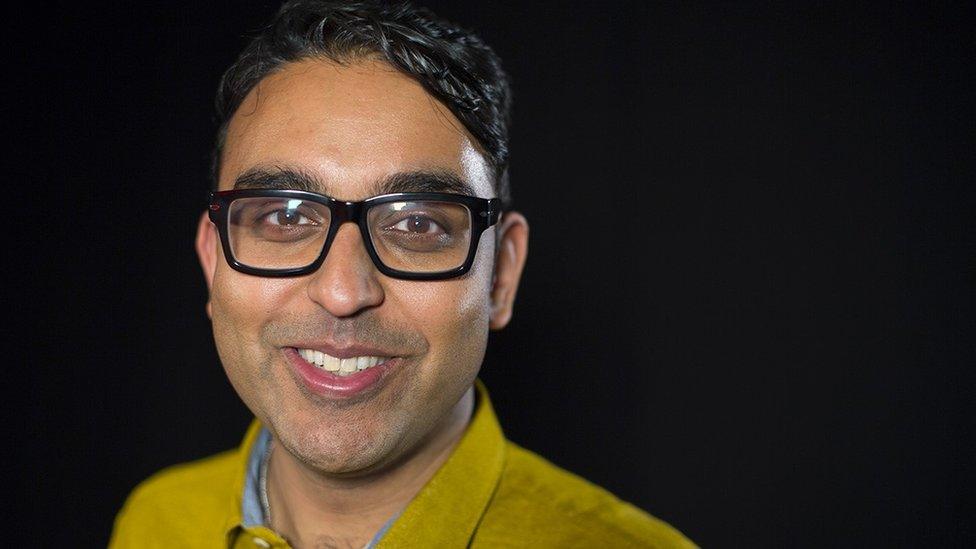
Professor Chakraborty says persistent staring is one example of covert racism
He said: "Being made to wait for food to be served in a restaurant or a café, or sometimes even complete refusal - you feel uncomfortable describing this as racism because you're thinking, 'Is this me? Am I being demanding?'
"Noticing people were crossing the street to avoid you. Why is that happening? Is it me? Am I intimidating?
"Persistent staring, constant reminders from neighbours who say, 'we don't see many like you around here'."
Prof Chakraborty said the "vast majority" of people who had moved from a city said they had encountered more racism in rural areas than they had in the city.
Louisa Adjoa Parker, a writer and poet of English and Ghanaian heritage, was born and raised in the UK and has lived in Devon and Dorset since she was a child - but seemingly innocent comments from others are a reminder that she is seen by some as an outsider.
'I was the only person with brown skin in the countryside'
One such conversation she describes was with a taxi driver who picked her up from Dorchester station to take her home.
"He just said, 'I know where you're going - you're going to work. We get a lot of carers down from London. They go off, look after people then get back on the train to London.'
"I said, 'I'm just going home, actually, and I'm a writer.'
"He just assumed, looking at the colour of my skin, that I was a care worker and, in his head, that's the only reason a black person could be at a train station in Dorchester."
She says such incidents have happened "time and time again".
"It gives you that feeling of, 'oh, OK, people don't see me as belonging here because of the colour of my skin and the texture of my hair'.
"This is my home. In terms of my culture, I'm a white west-country person but, in terms of my looks, I look like I'm from somewhere else."
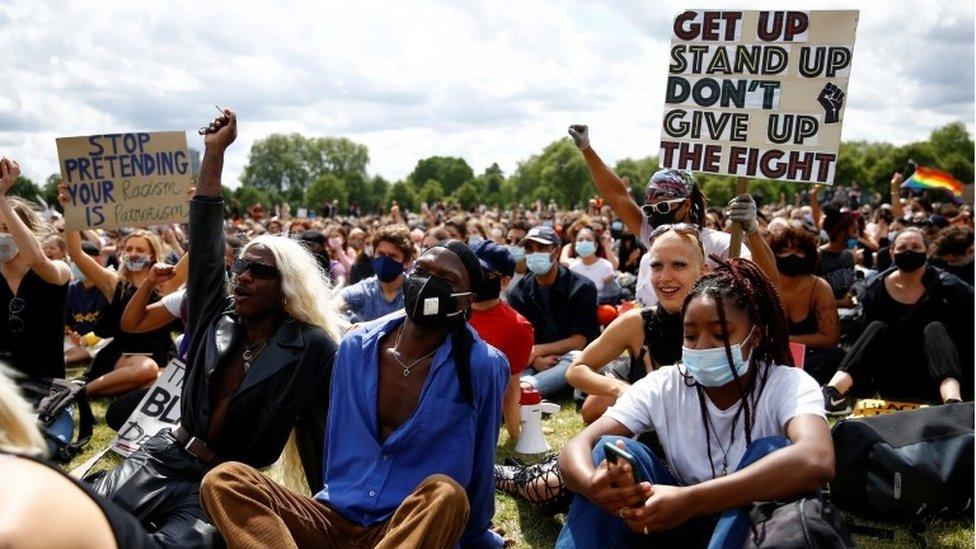
Black Lives Matter protests were held in towns and cities across the UK
Ms Parker said it was to be expected that some people in rural areas had stereotypes in their minds, adding that such comments were rarely borne of any malice.
"I think there's this idea that a racist is a bad person, but I think good people can also have racist beliefs, unconscious bias, stereotypes in their mind, and that's understandable, particularly in the west country because we don't have these conversations very much.
"We don't have large numbers of people from ethnic backgrounds who are non-white British so it often does stem from ignorance.
"When you walk into a room and you are the only person of colour, you stand out, you look different, you can't blend into the landscape around you, but really you just feel like everyone else - I'm British."
And that feeling of standing out is just one of the reasons why comparatively few people of colour visit the countryside, according to Phil Young, a campaigner and sports enthusiast who wants to bring more diversity to outdoor spaces.
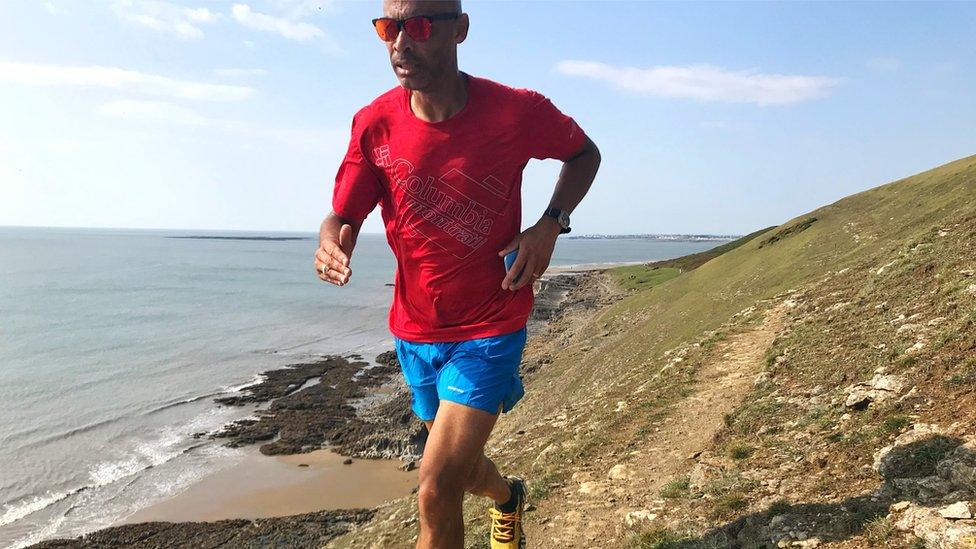
Phil Young says people will avoid places where they expect hostility
He said: "When I go to the countryside I have a fantastic time and most of the people are really friendly and happy to see you but it's still very difficult if five young black men wearing hoodies go into a country pub.
"For the rest of that pub to look around and go, 'are these guys here to sell drugs?' because that's what the media tells us.
"When you get that hostility towards you just for being with your friends, nine times out of 10 people will say, 'well, you know what, I'm not even going to put myself there'.
"If it's racist in a city like London where there's over three million people who identify as black, Asian or minority ethnic, why would you put yourself in a position to go into a countryside where there's less than 3% of people who look like you?"
And while Dorset's rural idyll might seem a million miles away from the protests that spread across the US and the UK last summer, Ms Parker claims they might have more to do with the history of the county than we realise.
"If we see a black African-American man being killed at the hands of the police in America, it might feel as though that's got nothing to do with us, nothing to do with Dorset," she said.
"But actually it was white men from Dorset and the west country who left the area, travelled around the world, colonised other countries, set up plantations, enslaving people, and they were some of the first people instrumental in setting up the systems of white supremacy that we see today.
"With all these conversations going on in the media about race, Meghan Markel and Black Lives Matter, I think it is quite easy to educate yourself, there are lots of resources out there."

Follow BBC South on Facebook, external, Twitter, external, or Instagram, external. Send your story ideas to south.newsonline@bbc.co.uk, external.
Related topics
- Published29 June 2021
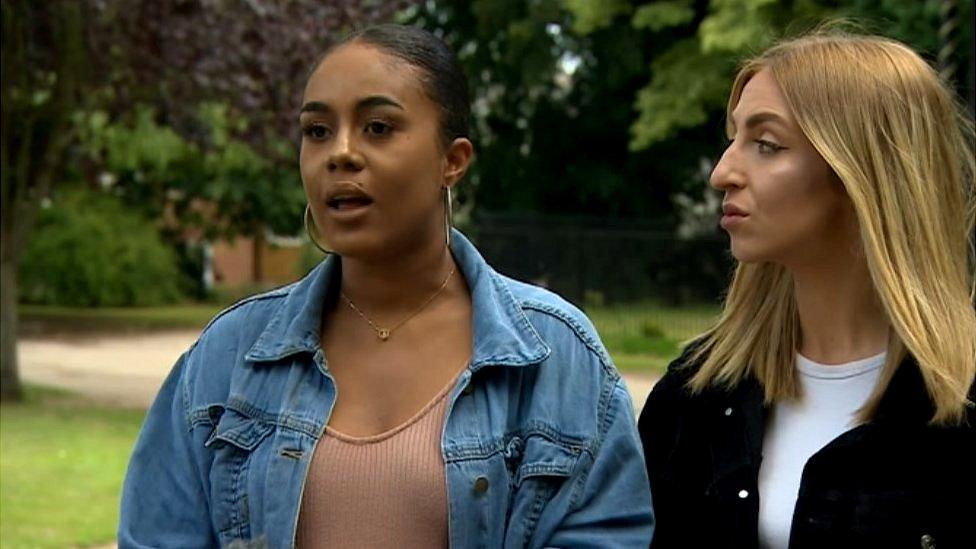
- Published13 June 2021
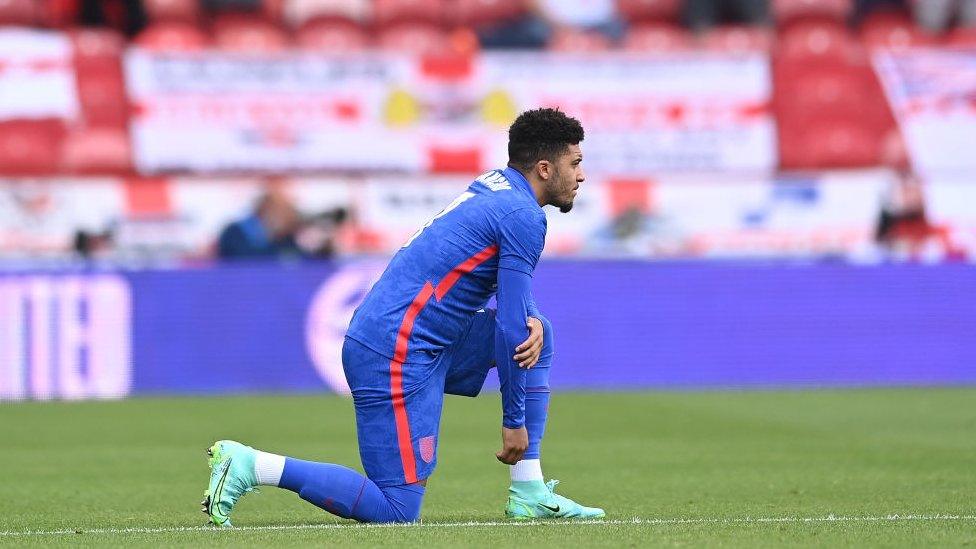
- Published31 March 2021
